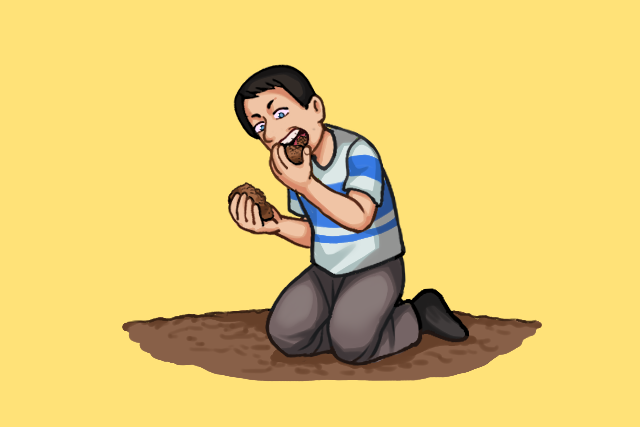Extended Summary
Chronic constipation is a gastrointestinal disorder characterised by hard stools, infrequent bowel movements, abdominal cramping, bloating, excessive straining, and the sensation of incomplete defecation. Some people perceive constipation as an embarrassing condition, but it is more common than expected — approximately 20% of American adults experience constipation.
Dietary fibre can prevent and treat constipation by increasing the water content of the stool, which allows for smooth passage through the gastrointestinal tract and excretion from the sphincter. It only takes a relatively small change in stool water content to dramatically change its consistency: liquid stool is ~90% water content; soft stool is ~77% water; formed stool is ~75% water; hard stool is ≤72% water. The ~18% absolute difference in stool water content is the difference between liquid and hard stools, enough to increase stool viscosity (a measure of resistance to flow) by up to 240%.
Dietary fibre has a couple of ways it can increase stool water content. Most simply, some fibres have an intrinsic capability to absorb water (water-holding capacity). In addition, dietary fibres can trap water in the gastrointestinal tract and stop it from escaping, which allows the stool to be exposed to more water. If you are interested in the direct evidence supporting these mechanisms, we recommend looking at fibre experiments that used plastic particles, validated wireless motility capsules, and MRI scans.
Importantly, dietary fibre is not a single entity: fibre is a class of compounds with very different physical and chemical characteristics. Though meta-analysis of dietary fibre as a general category has shown its a “moderately effective” treatment for constipation, the type of fibre matters. Reviews of readily fermentable fibres report that they almost always (14 of 15 studies included) have no significant effect on stool output or stool water content, and little to no laxative effect. It tends to be the soluble and non-fermentable fibres that benefit constipation the most.
The largest systematic review and meta-analysis to investigate the effect of fibre supplementation in chronic constipation found that a non-fermentable and soluble fibre (psyllium) was most effective, particularly at high doses (> 10 grams per day) and for long periods (at least 4 weeks). A considerable numbers of randomised trials including hydrolysed guar gum, fibre mixtures, dried fruits, veg-powders, and fibre-enriched milk, have also shown obvious benefit to one or more of the following outcomes: stool consistency, straining, bloating, abdominal pain, and the sensation of obstruction.
We would also strongly argue that, at the population-level, low fibre intakes are a risk factor for constipation. Large-scale evidence from cross-sectional and prospective cohort studies, such as the National Health and Nutrition Examination Survey 2005-2010, the Nurses Health Study, and the UK Women’s Cohort, all report that increased fibre intakes are associated with a reduced risk of developing constipation, even after considering other explanatory factors.
We only found one study to support the claim that dietary fibre causes constipation. In this study, patients with constipation were instructed by their doctors to stop eating certain high fibre foods for 2 weeks (wholegrains, vegetables, and fruits) and reported a dramatic benefit to their symptoms. After 6 months, 41 of the 63 patients continued on a no fibre diet; 16 were on a reduced fibre diet; and the remaining 6 patients returned to a high fibre diet. Further, the patients who continued to stop certain high-fibre foods all reported resolution of constipation symptoms at 6 months, whereas those in the reduced and high fibre groups continued to have symptoms.
This study might sound rather convincing. However, bear in mind that no measurement of dietary fibre intake was taken in this trial. It is not controversial to say that this study was a very low-quality trial for that reason alone. We do not know (and cannot even estimate) how much fibre that patients were eating before, during, or after the trial. Perhaps more importantly, though, symptom improvements from dietary changes can often be transient and does not necessarily mean that the underlying pathology is treated. A bit like if someone with a lactose intolerance stops eating lactose: their symptoms improve while their intolerance remains. For similar reasons, it would not be surprising if consuming a low-residue diet (including little to no fibre) reduces stool bulk and helps to improve symptoms while the true cause remains unchanged.






